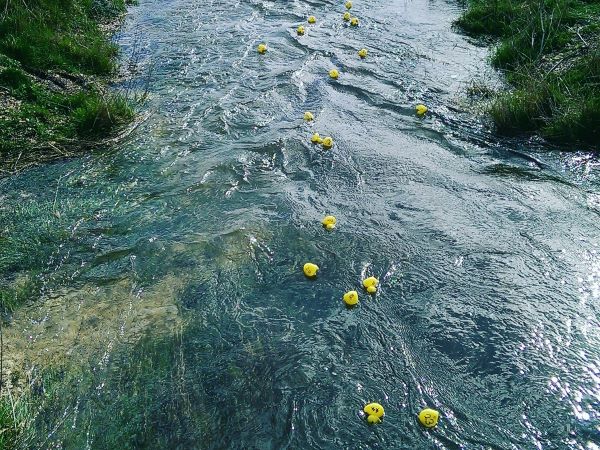
Directors' Diary - Focus on Water
Posted by Tracey Baty on
Water is crucial to brewing - it's 90% of the product and helps the flavour profile of the beer.
Brewing water affects the beer in three ways: it influences the pH of the beer, which can change how the beer flavours are expressed to your palate; it provides “seasoning” from the sulphate-to-chloride ratio; and it can cause off-flavours from chlorine or contaminants.
In general, brewing water should be clean and free of any odours, such as chlorine or pond smells. Usually, good brewing water for conducting the mash and creating the wort should be moderately hard and have low-to-moderate alkalinity. But it depends (doesn’t it always?) on the type of beer you want to brew and the mineral character of your water. For example, Dublin's water gave rise to the emergence of Stouts (Guinness), London's water favoured Porters whilst the water around Burton on Trent allowed for the development and rise of Pale Ale and Bitter.
Basically water comes from two sources: surface water from lakes, rivers, and streams and groundwater, which comes from aquifers underground. Surface water tends to be low in dissolved minerals but higher in organic matter, such as leaves and algae, which need to be filtered and disinfected with chlorine treatment. Groundwater is generally low in organic matter but higher in dissolved minerals.
Here at Wold Top we have awesome chalk filtered water drawn straight from the ground. This means it's quite 'hard' so, to soften it, we use a product called AMS which is added into our water tank pre production. It helps to balance the pH of the water and remove unnecessary ions. We don’t however have to treat it with any other chemicals or chlorinate it!
We love our water. It tastes fantastic and it’s all due to our location! Our farm is sited in an offshoot of an area known as the Great Wold Valley. This is the broadest and longest of the valleys cutting into the Yorkshire Wolds and runs eastwards from Wharram-le-Street, reaching the sea at Bridlington. Along this valley runs a chalk stream called the Gypsey Race, pictured during the annual duck race.
A gypsey is a name given to intermittent springs and streams here on the Yorkshire Wolds, pronounced ‘Gyp’ or ‘Gip’ depending on age! They are streams formed from springs from the water laden chalk that constitutes the Yorkshire Wolds. The springs flow in late winter or early spring, with the water emanating through unbroken turf. This is where we source our brewery water supply from, the underground aquifers that abound under the chalk from which we draw what we need.
According to folklore, when the Gypsey Race is flowing or in flood, bad fortune is at hand (The Woe Waters of the Wolds).
It was in flood in the year before the great plague of 1664, the restoration of Charles II (1660) and the landing of William of Orange (1688), before the two world wars and the bad winters of 1947 and 1962.
The stream also badly flooded the village of Burton Fleming in 2012 when the water was 2 feet (0.61 m) deep in places.
